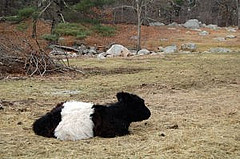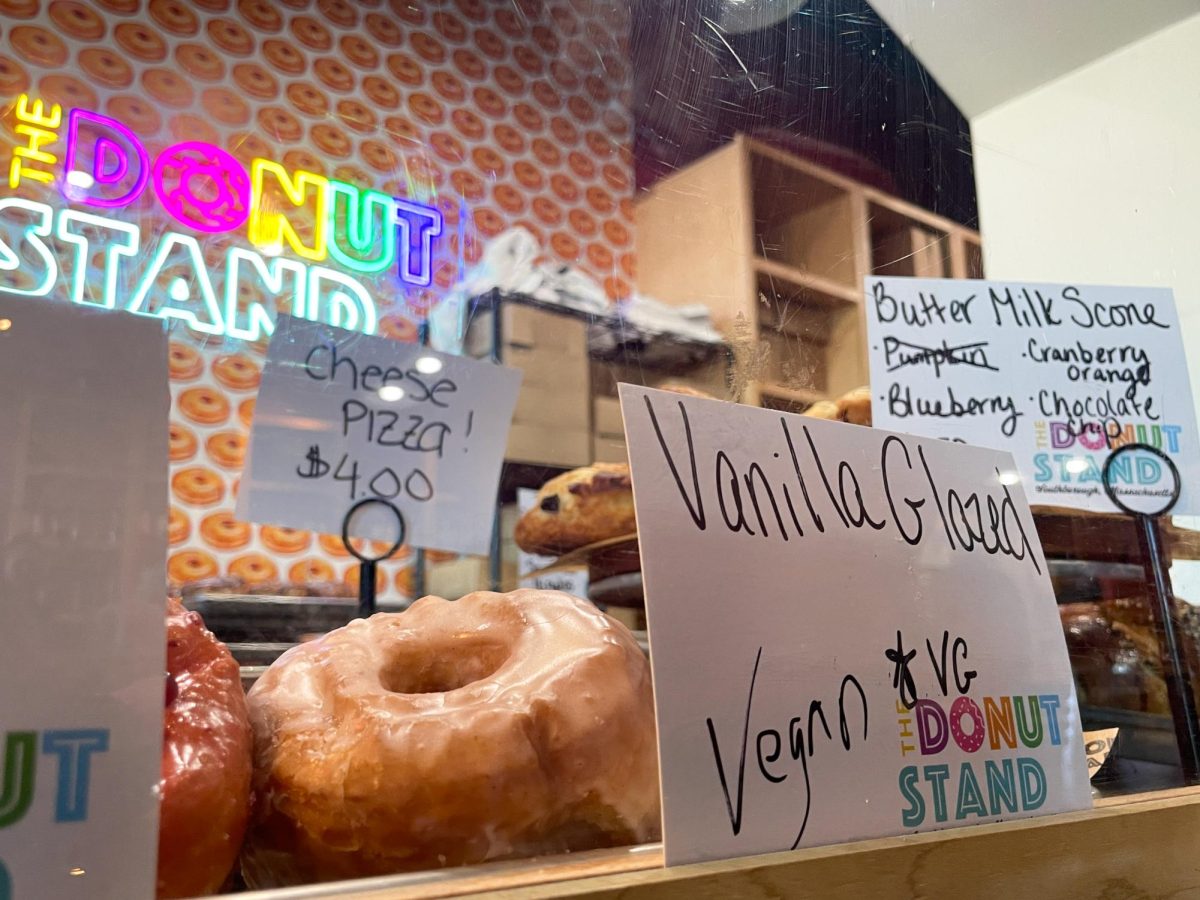
By Taylor Bush
Now more than ever, town and state economies are strained. As a result, local restaurants have been exploring the use of local farms to get their produce. Using local farms helps stimulate the town and state economy, and is better for the environment.
Being aware of where the food is coming from and how the animals are treated significantly impacts consumer well being.  The animals are not injected or modified in any way at local, organic farms. Factory farms contain thousands of animals and build lagoons to send millions of gallons of manure into lakes and streams, contaminating our water sources.  Many factory farms house there animals inhumanely, injecting the animals with hormones and antibiotics.
A restaurant in downtown Hopkinton, Ciao Time Restaurant and Catering, was opened by Denise Griben in 2007. Griben described how if possible she would always use local farms, but it just depends on the season. “In the summer time when I can, I like to go over to Pratts Farm to get produce over on Fruit Street. And I do try to go to the Western Nurseries when they have the farm stand over there. Â I usually will get my produce from a vendor down in Fall River, and they do use local Massachusetts grown farms.” Â She also stated, “I really have to watch my pricing with everything, so that’s kind of what drives a lot of things.”
“Our vendor is based out of Boston, so we basically buy things off our vendor. So when things are in season, we do buy them locally, but there are things on our menu that aren’t always in season here. We have to buy on a year round basis. So, as much as possible, yes, but it isn’t possible all the time,” said Mike Tobin, the owner of Marathon Restaurant off of South Street in Hopkinton.
Mike Gentile, a staff member at Bill’s Pizza in downtown Hopkinton, explained why they can’t always use local farms. “It depends on the best deal we can get, we have a provider who brings us the food twice a week.  He goes to a market, the best he can get, and the best price he gives to us.  So some of the stuff comes from around here, but some of the stuff also comes from California and Georgia and South Carolina.”
Although produce from factory farms has to travel hundreds of miles before ending up on a plate in a local restaurant, it is still often less expensive than ordering the same amount of produce from a local farm.  Most restaurants are sensitive to food costs and are always trying to conserve money when purchasing products, especially in today’s economy.  Lower prices make factory farms more appealing to restaurants.  Since so many vendors buy produce from factory farms, the sheer volume of business provides tax incentives, resulting in more competitive prices.  However, this does not contribute to the local economy.  Local, smaller scale farms have a higher cost of ownership and potentially higher taxation, without benefitting from volume discounts, which contributes to potentially higher prices.
Krochmal Farms is the largest hog facility in Massachusetts. In an effort to stay competitive, they have expanded their operation. The farm, however, has been receiving hundreds of odor complaints from both Tewksbury and Wilmington. Gallons of urine and feces are stored and composted on fields near the neighborhoods adjacent to the factory farm. The composted waste comes from a septic tank that stores about a half million gallons.
Large, high volume farm operations pose challenges to the environment and consumer health. While the cost of an individual plate at a restaurant might be less, the other costs may be greater.





